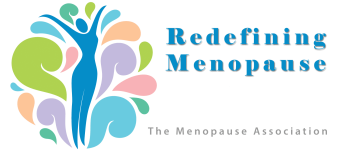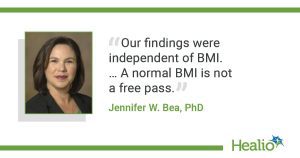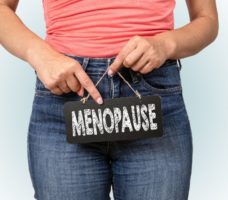If you’re a woman in her 40s or 50s, you’ve probably given some thought to how perimenopause and menopause might affect your . It’s a topic that comes up in conversation with my patients quite a bit.
Sleep affects every part of your life, and has an incredibly broad influence over your health. When thinking about the health risks that arise or change during menopause, it’s important to also think about sleep as a factor. Sleep can influence and be influenced by a woman’s health and other health conditions as she moves through menopause.
Let’s take a closer look at some of the health risks that can occur during menopause, and how sleep is involved.
Difficulty sleeping during menopause is what brings many women to my office. Even women who have slept soundly and well for years find themselves struggling in new ways with sleep during perimenopause and menopause. The decline of sleep-promoting including estrogen and progesterone is one big reason for disrupted sleep. And the other symptoms of menopause—from mood swings and to night sweats—also contribute to sleep problems for women. Production of another critical hormone for sleep—melatonin—also decreases with age, which can compound sleep problems for women during menopause and beyond.
Research shows women’s risk for sleep disorders increases as she moves through the menopausal transition. Among my patients in perimenopause and menopause, I see three sleep disorders in particular occurring more frequently:
Insomnia becomes increasingly common for women during menopause—and I see it present different symptoms from one woman to another. Some women may have new difficulty falling asleep, often the result of , anxiety, and a racing mind. Many women find themselves waking more often in the night, a result of night sweats or needing to use the bathroom more often. I hear from many women in menopause that they wake very early in the morning, their minds leaping right into first gear, leaving them unable to fall back asleep. Any of these insomnia symptoms can result in starting the day feeling tired, unrefreshed, and unfocused.
Insomnia, especially when it is chronic, can do more than make you feel tired, fatigued, and irritable. Insomnia can
• Cause problems with , attention, learning ability, and other executive functions such as , planning, and judgment
• Raise risk for cardiovascular disease, including high blood pressure, coronary heart disease, and heart failure
• Elevate risk for type 2 diabetes
Women are about twice as likely as men to experience restless leg syndrome, or RLS. RLS becomes more common in women during , when studies show as many as 30 percent or more women experience this uncomfortable sleep disorder, with its hallmark symptom of tingling, creepy-crawly sensations in the legs at night. (Most, but not all, pregnancy-related RLS ease after childbirth.)
Scientists haven’t yet clearly identified the role that women’s hormones play in RLS, or how menopausal changes influence RLS. We need more research in this area! We do know—and I see this in my own patients—women with RLS often tend to experience more severe symptoms of RLS in post-menopause. One study of RLS patients found 69 percent of post-menopausal women perceived their symptoms as worse than before menopause.
RLS can lead to significant daytime fatigue. Its unpleasant symptoms make it hard for people to fall asleep, compromising sleep quality and sleep quantity.
For a long time, sleep apnea was thought of by many people—including some physicians—as a “men’s” sleep problem. Fortunately, that perception is changing, though we still have a way to go. It’s true that in the general population, obstructive sleep apnea occurs more often in men than in women. But women’s risk for sleep apnea increases significantly with the transition to menopause. Research shows post-menopausal women are at greater risk for OSA compared to pre-menopausal women. And they’re more likely to experience more severe sleep apnea. Weight gain that is associated with menopause is likely one factor in the increased risk—but there’s more to learn here about the connection between menopause and sleep apnea.
Just recently, this study caught my eye: research showed that night sweats and hot flashesmay be linked to increased risk for sleep apnea. In this research, women who experience severe hot flashes and night sweats were found to have nearly twice the risk of obstructive sleep apnea than women with mild hot flashes, or none at all.
Most people know the symptom of sleep apnea as loud snoring and gasping. That’s true. But women may also experience other, less well-known symptoms of OSA, including headaches, insomnia, signs of or anxiety, and daytime fatigue. Men and women experience sleep apnea differently, and women’s symptoms may be somewhat subtler and harder to pinpoint than men’s. Not all women with OSA will show signs of the loud snoring and snorting during sleep—but even without this particular symptom, you may still be experiencing sleep disordered breathing that is sleep apnea. It’s important to be an advocate for yourself with your physician. If you have any of the symptoms I’ve mentioned above, share them with your doctor and ask your doc to look at OSA as a possible cause.
I get a lot of questions from my patients who are in menopause about changes to their metabolism, and how they relate to sleep. Many worry about weight gain and its impact on quality of life, health, and sound sleep. Sleeping well is a powerful tool in managing weight and throughout a woman’s life—including during menopause.
Type 2 diabetes and other metabolic disorders become a greater risk for both men and women with age. The transition through menopause marks a time for women to pay particular attention to their metabolic health. Changes to appetite, energy levels, and physical activity, along with changes to metabolic functions that come with the decline in estrogen and other hormones, all can put women at higher risk for , type 2 diabetes, and metabolic syndrome. (What’s metabolic syndrome? A group of co-occurring conditions including high blood pressure, high blood sugar, increased abdominal fat, high cholesterol and high triglycerides, which increase a person’s risk for diabetes, heart disease, and stroke.)
Changing levels of estrogen are involved in a woman’s heightened risk for diabetes, obesity and other metabolic conditions in menopause. Estrogen:
• Helps the body manage fat storage and fat distribution. Declining estrogen in menopause can contribute to a woman gaining fat in her midsection—a risk factor for diabetes.
• Regulates hormones that control appetite and cravings. In perimenopause, levels of the hunger-stimulating hormone ghrelin increase, a reason why many women find themselves frequently hungry during this phase. Levels of the hormone leptin, which promotes a sense of fullness, reduce throughout peri- and postmenopause.
• Appears to play a role in managing insulin, along with other hormones (including ) that are affected by menopause. Lower estrogen and other hormones may lead to increased insulin resistance, leading to higher blood sugar.
The effect that sleep can have on protecting your metabolic health is pretty awesome. In addition to helping keep hunger hormones in check and giving you the restorative energy you need to be physically active, getting enough sleep can help keep insulin functioning well in the body. Sleep loss, on the other hand, can trigger insulin resistance. A 2015 study found that a single night of total sleep deprivation was as detrimental to insulin sensitivity as six months of eating a high-fat ! Putting attention toward sleeping well during menopause can help guard against unhealthful, unwanted weight gain and keep your body’s metabolic system functioning well.
With menopause, a woman’s risk for osteoporosis increases. (Bone mass actually begins to decrease in women in their mid-30s, when most women are still in pre-menopause.) Estrogen helps to protect bone density in women, and declining estrogen makes women more vulnerable to bone loss, and lower bone density.
Does it surprise you to hear that your sleep can have an effect on your osteoporosis risk? A lot of my patients are pretty startled to hear that news. Research shows that poor sleep quality is linked to osteoporosis—specifically to an osteoporosis marker known as bone stiffness. Other research shows that having a sleep disorder—including obstructive sleep apnea and insomnia—can put a person at nearly three times the risk for osteoporosis. The connection between sleep disorders and osteoporosis risk is strongest among women and people over the age of 64. There are many reasons to focus on getting enough rest as you transition through menopause—protecting your bone health is one reason many women don’t know.
Estrogen plays a role in protecting women’s heart health. A woman’s risk for cardiovascular disease increases with age, and the loss of estrogen and other hormones appears to be a factor in that risk—along with other factors including , diet, physical activity, and other health conditions. Estrogen works to keep blood vessels relaxed, supporting health circulation. When estrogen levels drop, blood vessels can lose elasticity and become stiff. In menopause, a woman’s risk for high blood pressure increases—as does her risk for high cholesterol. Estrogen also acts like an in the body, and helps keep inflammation in check. Unhealthful inflammation is a contributor to heart disease.
Sleeping well is one great way to protect your heart health and guard against inflammation. Poor sleep is linked to:
• High blood pressure
• High cholesterol
• Increased risks for heart attack and stroke
Research shows women may be especially vulnerable to the impact of poor sleep on heart health, especially if she already has heart disease.
Autoimmune diseases affect women at well more than twice the rate of men. Roughly 78 percent of all autoimmune cases occur in women, according to research. I see a number of patients in my practice for sleep issues related to autoimmune disorders, from multiple sclerosis to thyroid disorders to rheumatoid arthritis. What are autoimmune diseases? A group of diseases involving an abnormal immune response, when the body’s immune system attacks its own healthy tissues. Sleep problems are a common symptom of autoimmune conditions. Body pain is another frequent symptom of autoimmune diseases—and chronic or recurring pain can make it difficult to get enough high-quality sleep. There’s research that indicates poor sleep can actually raise the risk for several autoimmune diseases, including rheumatoid arthritis and lupus.
The relationship between autoimmune disease and menopause—how each might affect the other—is complex, and not yet well understood. Research indicates that during the menopausal transition, symptoms of some autoimmune diseases, including multiple sclerosis and rheumatoid arthritis, may get worse, while other autoimmune diseases, including lupus and scleroderma, may improve. Given the degree to which these diseases affect women, it’s critical we know more about how women’s autoimmune health changes and is changed by menopause.
It’s important to remember, menopause isn’t a disease or a disorder: it’s a natural stage of life for women. It is also a time in women’s lives when their health risks change. Understanding the those new and different health risks can help women take the right steps to protect their well being through menopause and with age. Every woman’s particular risk factors will be different. But every woman can benefit from a focus on health sleep.
Next, I’ll talk about the treatments and therapies, including supplements, that may help women sleep and perform better during menopause.
This content was originally published here.








